Overview of gastric sleeve surgery
Read on to find out more information on how long is laparoscopic gastric sleeve surgery. Laparoscopic gastric sleeve surgery is one of the types of weight-loss surgery. This procedure is done through very small incisions in your abdomen. Your surgeon will be removing a long section of your stomach to reduce the amount of food you can eat and reduce your appetite. About 80% of the stomach is removed. The procedure also causes hormonal changes in the body that reduce your appetite. There isn’t any bypass of your bowel in this procedure to reduce the absorption of calories. It is not reversible, but it is a safer procedure than other bariatric surgery types, with fewer complications after surgery. It is also sometimes used to help you lose enough weight so that another type of surgery can be done, like a gastric bypass.
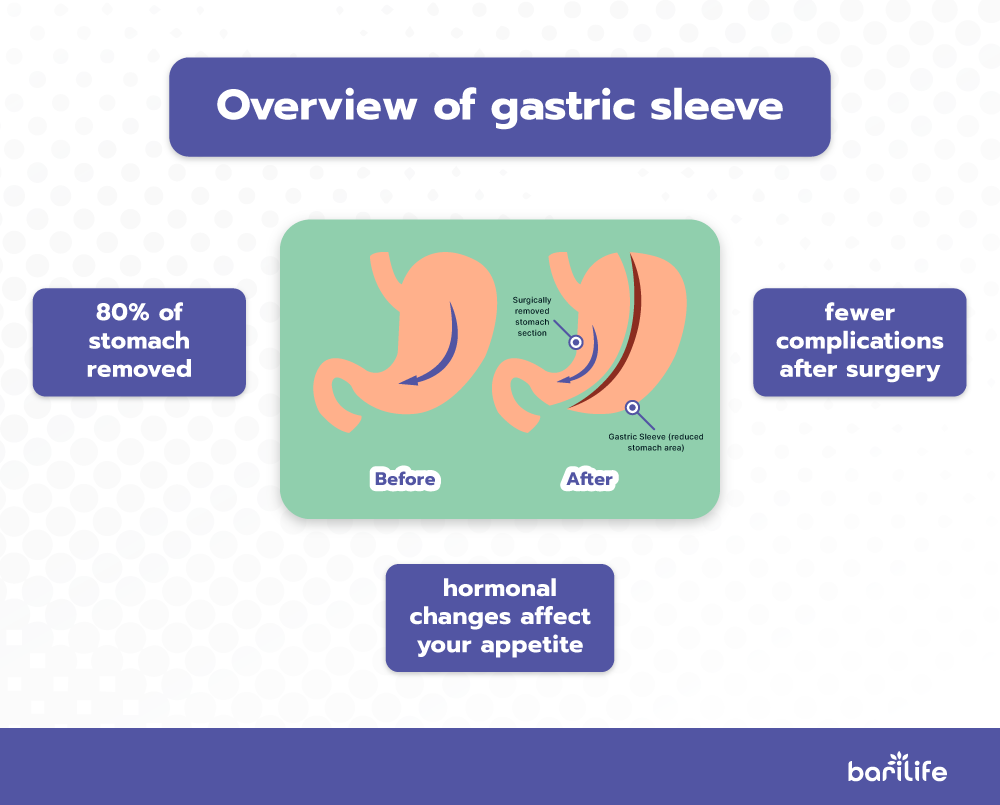
The long wait for gastric sleeve surgery approval
The wait for your initial visit with your surgeon, testing, education, approval by a nutritionist and a psychologist, more testing, and approval from insurance can take up to seven months in many cases. Once you have gone through this process and scheduled your surgery, you may be wondering what the day of surgery will be like and how long your surgery will take.
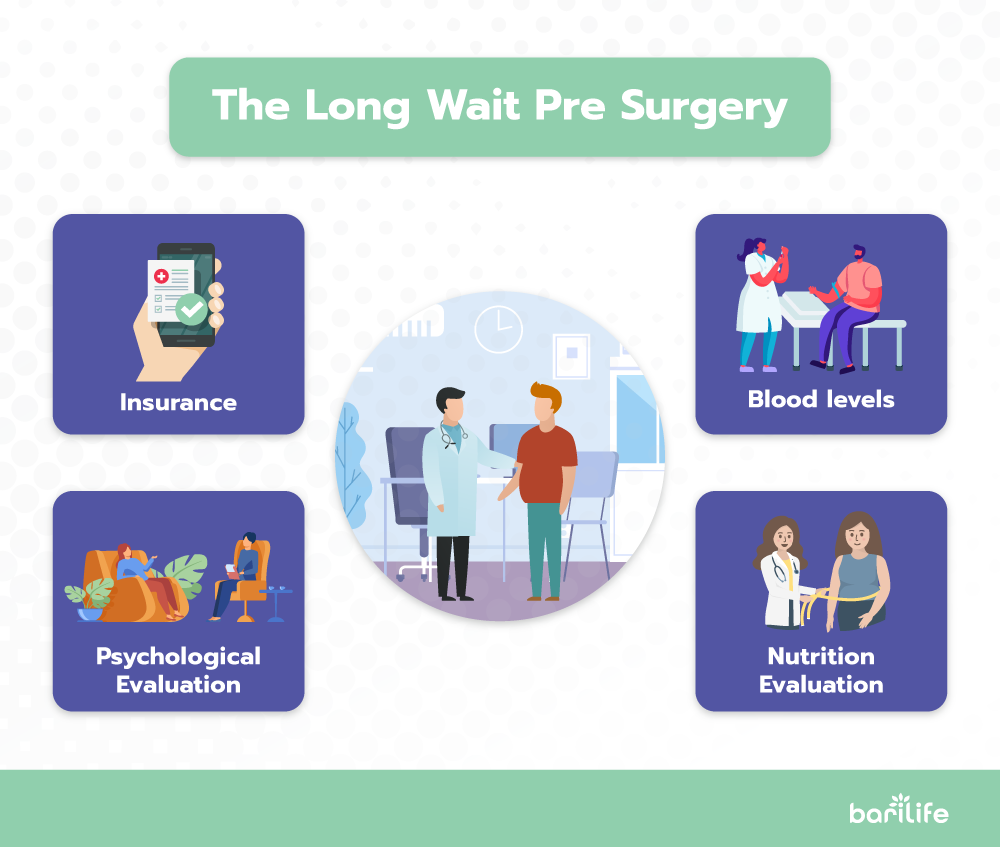
On the day of gastric sleeve surgery
Pre-operative holding (pre-op)
When you arrive at the hospital, you will be admitted and taken to the pre-operative holding area. Your family can wait for you in the waiting room, or some number may be allowed to be with you in the pre-op area. Your pre-op nurse will take your history, do a physical exam, start your I.V., and administer any medications your surgeon or anesthesiologist wants you to have before the operation. Your surgeon and anesthesiologist will speak with you before you are taken to the operating room. You might be offered a relaxing medication if you are anxious. This process can take anywhere from 45 minutes to an hour or more.
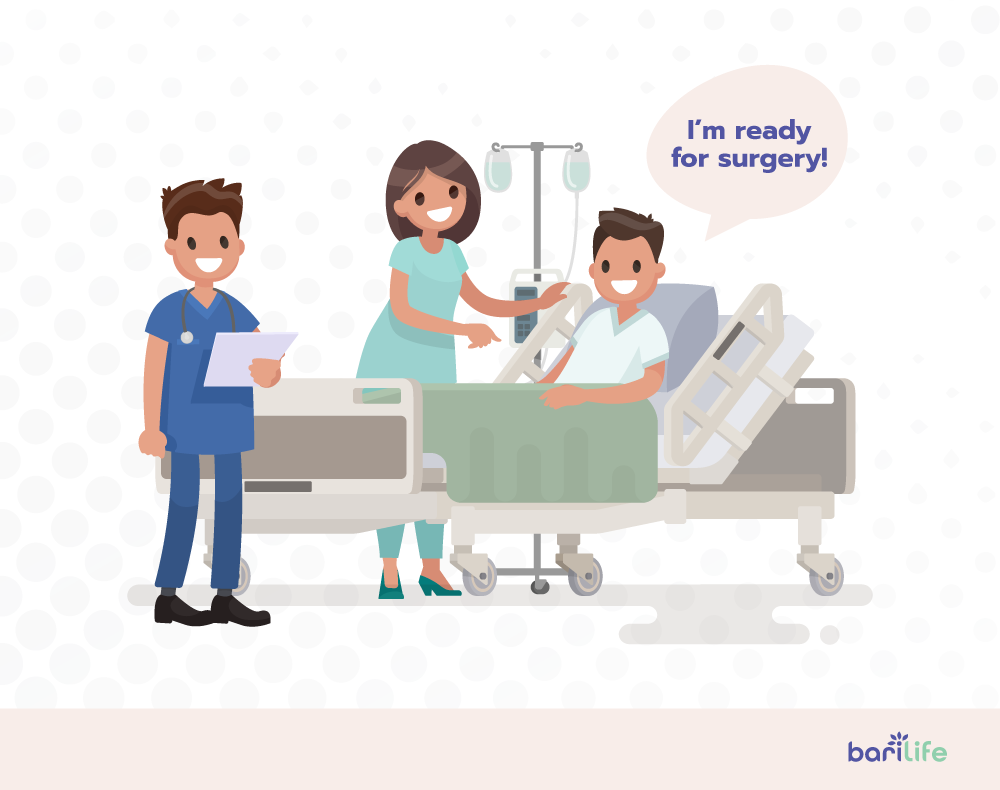
Going to the operating room
A surgical nurse or anesthesia nurse will come to take you to the operating room. You will be asked the same questions several times as a safeguard to make sure you are the correct patient and that the right surgery will be done.
Going to sleep
Many patients are nervous about anesthesia, but there is no need to be. When you arrive in the OR, the nurses will hook you up to monitoring devices and make you comfortable. You will drift off the sleep, and then the anesthesia team will place your breathing tube. This process takes anywhere from 10-20 minutes.
Positioning, prepping, and draping
Once you are fully asleep, the team will make sure that you are positioned correctly on the bed, and then a nurse will (prep) apply a sterile solution to your abdomen. Sterile paper drapes will be placed on your body. This portion of the procedure takes about 15 minutes.
Amount of time for the actual surgery
Each step of the operation takes a variable amount of time. For example,
The time it takes to prepare the stomach for stapling can take anywhere from 5-15 minutes, for stomach stapling 8–20 minutes, and management of the staple line 1–25 minutes.
The average time for the operation itself is about 105 minutes, or 1 hour and 45 minutes. Sometimes, your surgeon will need to perform other procedures at the same time you are having gastric sleeve surgery. Some of the procedures include:
- Hernia repair
- Gall bladder removal (Cholecystectomy)
These procedures can add a small amount of time or a large amount, depending on the circumstances. Other factors that may lengthen surgery time are breaking up adhesions, control of bleeding, and patient size.
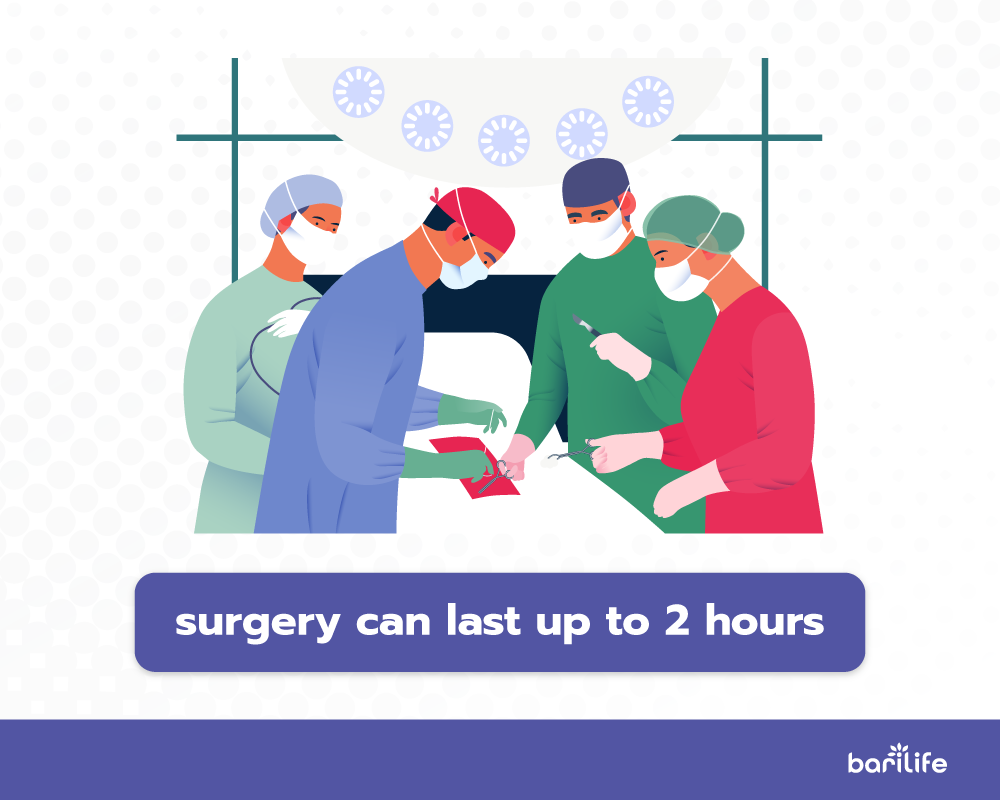
Time spent waking up and recovering in PACU (recovery)
After your surgery is complete, your team will allow you to wake up in the operation room. Your team will then take you to the PACU (post-anesthesia care unit), where you will be carefully watched as you become more awake. Patients usually spend an hour to an hour and a half here.
Conclusion
You will have a 2-3 day hospital stay after surgery, where you will be monitored for any complications. Your care team will give you instructions to follow at home for the best recovery. You can usually go back to work after two weeks.
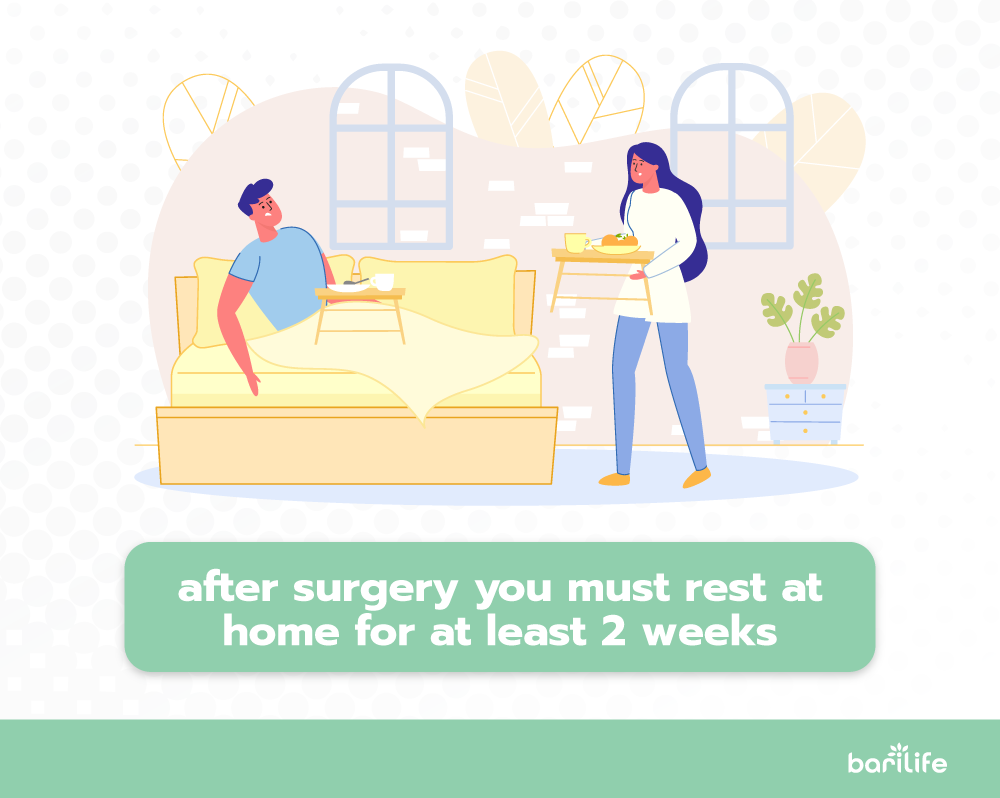
What you can do to support an uncomplicated recovery
The best way to improve your chances of a great outcome is to follow your treatment team’s suggestions:
- Quitting smoking
- Following post-operative instructions on diet and activity
- Attending your pre-operative and post-operative counseling appointments
These have all been proven to reduce complications after surgery.




What are your tips and tricks to post-bariatric success?